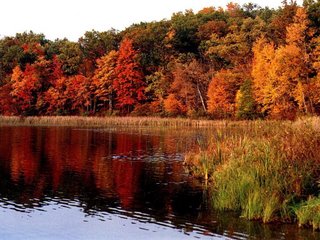
Another of my favorite anthropologists and philosophers is Loren Eiseley, whose most well-known book, THE IMMENSE JOURNEY, was published in 1946. His essays combine his knowledge of science with a powerful literary writing style. One of my favorites is "The Star Thrower", which has become an American folk story as others have adapted it. I have never found any of the "folksy" versions as powerful as Eiseley's own amazing essay, and I can only recommend that you read the entire piece of writing.
At the time he wrote the essay, Eiseley was in a period of great agony in his mind and spirit. He said, "I was the inhumanly stripped skeleton without voice, without hope, wandering alone upon the shores of the world." He walked the beaches of Costabel, watching the greedy collectors gathering shells to sell to tourists. Then he said:
Ahead of me, over the projecting point, a gigantic rainbow of incredible perfection had sprung shimmering into existence. Somewhere toward its foot I discerned a human figure stand, as it seemed to me, within the rainbow, though unconscious of his position. He was gazing fixedly at something in the sand.
Eventually he stooped and flung the object beyond the breaking surf. I labored toward him over a half-mile of uncertain footing. By the time I reached him the rainbow had receded ahead of us, but something of its color still ran hastily in many changing lights across his features. He was starting to kneel again.
In a pool of sand and silt a starfish had thrust its arms up stiffly and was holding its body away from the stifling mud.
"It's still alive," I ventured.
"Yes," he said, and with a quick yet gentle movement he picked up the star and spun it over my head and far out into the sea. It sank in a burst of spume, and the waters roared once more.
"It may live," he said, "if the offshore pull is strong enough." He spoke gently, and across his bronzed worn face the light still came and went in subtly altering colors.
"There are not many come this far," I said, groping in a sudden embarrassment for words. "Do you collect?"
"Only like this," he said softly, gesturing amidst the wreckage of the short. "And only for the living." He stooped again, oblivious of my curiosity, and skipped another star neatly across the water.
"The stars," he said, "throw well. One can help them."
Eiseley then goes back to his room, still caught in his existential despair--until he realizes that we are not just victims of natural selection but able to rise above it through our capacity for love and pity. We cannot expect the rest of the natural world to "love" us--but that does not take away our responsibility to love and care for that world. So he leaves his room to seek the thrower:
On a point of land, as though projecting into a domain beyond us, I found the star thrower. In the sweet rain-swept morning, that great many-hued rainbow still lurked and wavered tentatively beyond him. Silently I sought and picked up a still-living star, spinning it far out into the waves. I spoke once briefly. "I understand," I said. "Call me another thrower." Only then I allowed myself to think, He is not alone any longer. After us there will be others.




